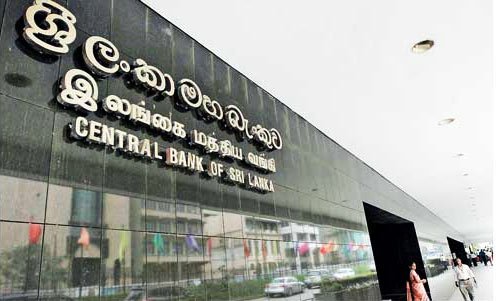CB for tightening noose on tax evaders

Improved monitoring of high-end transactions, including car and property sales, would reduce tax evasion, the Central Bank said in its latest Annual Report, recommending that such transactions be matched with income declarations.
The Central Bank commended the commitment of the Government to increase government revenue through tax reforms, spearheaded by the Inland Revenue Act that came into effect from 1 April and is expected to add up to Rs. 60 billion per annum. However, it observed there is space to enhance direct tax revenue by strengthening monitoring and by improving tax administration using technology to bring tax evaders into the tax net. Tax evasion by individuals and corporates has been one of the primary reasons for the decline in direct tax revenue as a percentage of GDP, the report which was released on 26 April said.
“Tax evaders deliberately understate or avoid reporting the true state of their net worth and income to the tax authorities to reduce tax liability. This requires reconciling income declarations with data retrieved from high-end transactions such as luxury car sales and property sales,” it added.
“Although the Inland Revenue Department (IRD) carries out such examinations and follows up with semi-automated systems, a sophisticated electronic system linking up relevant institutions with the tax system is essential to efficiently confront tax evasion.
The full implementation of the RAMIS is expected to connect the system with over 20 other external institutions including the Central Bank, licensed banks, Sri Lanka Customs, Registrar of Motor Vehicles, Condominium Management Authority, Colombo Stock Exchange and the Land Registry for effective tax reconciliation.”
The Central Bank said that addressing the remaining infrastructure and human resource bottlenecks to implement the much-needed system would enable authorities to tackle tax evasion efficiently.
It would also enable the Government address the obvious disconnect between the growth of high-end economic activity and the declining direct tax revenue to GDP ratio, the report said.
CB calls for energy pricing formulas
- Supports cost-reflective fuel and power pricing
- Points out loss-making CEB and CPC undermine banking system, CB policy measures
- Insists pricing formula would promote efficient consumption, better inflation management
The Central Bank, in its latest Annual Report, has called on policymakers to move to a transparent fuel pricing formula to adopt cost-reflective pricing mechanisms for utilities, including power to promote the financial viability of State enterprises and also make consumption efficient.
A transparent pricing formula for fuel is part of the structural benchmarks under the $1.5 billion International Monetary Fund (IMF) Extended Fund Facility (EFF). A cost-reflective policy for fuel was initially expected to be introduced in March, with a separate one for electricity in September. The Government has postponed implementing the fuel pricing formula but has indicated it will attempt to do so, though a timeline has not been indicated.
The deteriorating financial performance of the Ceylon Petroleum Corporation (CPC) and the Ceylon Electricity Board (CEB) has repercussions on the banking sector through heavy borrowing, which also undermines the Central Bank’s policy measures to curb credit growth to manage inflation when needed, the Annual Report points out.
The report, which was released on 26 April, goes on to observe that higher demand for energy arising from inappropriate pricing also results in increased pressure on the Balance of Payments (BOP), and thereby on the exchange rate.
“On the other hand, administered prices do not reflect the actual cost and may not pass on benefits to users during periods of low energy prices in global markets or periods with lower power generation costs. This could affect the country’s competitiveness while the cost of living could remain artificially high, worsening living standards,” the Central Bank warns. “In addition, uncertainty arising from sharp revisions to administered prices of energy also affects consumer and producer decisions adversely. Therefore, it is essential that urgent steps are taken to implement cost-reflective pricing strategies for the energy sector with fixed time intervals for domestic price revisions in order to ensure the financial viability of State enterprises and promote optimal resource allocation in the economy.”
The IMF, in its evaluation report released in August 2017, said it is working to put automatic fuel and electricity pricing mechanism measures back on track with the Government, with the one for fuel to be rolled out by March.
At the time, the Staff Report noted that commitments made earlier on automatic pricing for fuel and power had not been implemented by the Government. CPC and the Ceylon Electricity Board (CEB) will be two key State-run enterprises that will be subjected to reforms. “The structural benchmark for establishing automatic fuel and electricity pricing mechanisms has not been met. We are pursuing a sequence of steps to put the reform process back on track. First, we will complete a report outlining the cost of non-commercial obligations for fuel and electricity by September 2017 (new structural benchmark), supported by IMF Technical Assistance.”
(Source: Daily FT)

Latest Headlines in Sri Lanka
- Batalanda commission report tabled in Sri Lankan Parliament March 14, 2025
- Female Grama Niladharis withdraw from night duty over security concerns March 14, 2025
- Sri Lanka ranked as the best country for settling down March 14, 2025
- UN pledges support for Sri Lanka’s industrial and SME development March 13, 2025
- Former Boossa Prison Superintendent shot dead in Akmeemana March 13, 2025


